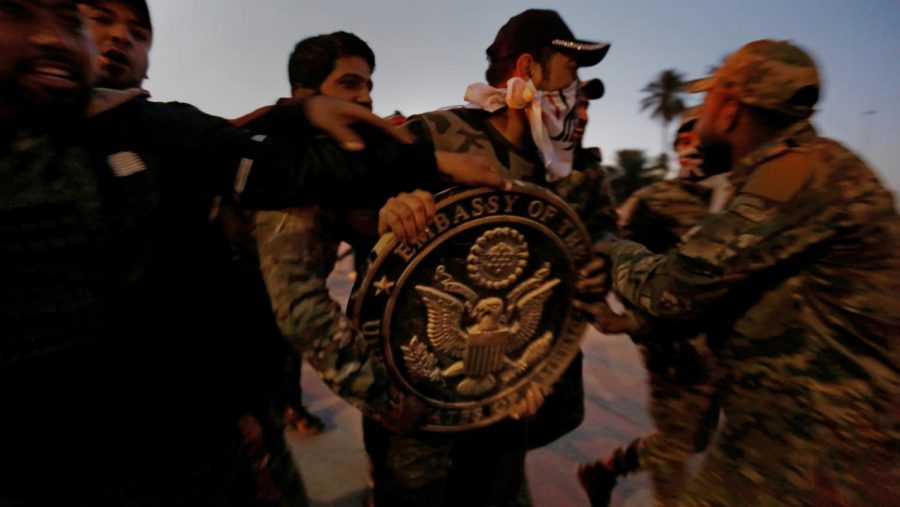U.S. Airstrike on Iraq—Overview and Consequences
January 9, 2020
The US launched an airstrike in Bagdad on January 2nd, killing Qassem Soleimani, the head of Iran’s elite Quds military force, creating a rift in foreign relations between the two powerful countries.
This airstrike was a response to the attempt by Iraqi Shia paramilitary group Kataib Hezbollahto supporters to storm the U.S. embassy compound in Baghdad on December 31st, which resulted in the death of an American contractor, multiple injuries, and damage to the outside and reception area of the embassy.
Upon Soleimani’s death, President Donald J. Trump stated that Soleimani was plotting “imminent and sinister attacks on American diplomats and American personnel, but we caught him in the act and terminated him.”
The attack, however, was met with anger in Iran, with thousands mourning Soleimani’s death and the Iranian government stating through a television broadcast that it would no longer be abiding by the terms negotiated in the 2015 nuclear deal, thus lifting restrictions on covert activity, centrifuges, uranium enrichment, and more.
Esmail Ghaani, the Iranian general who will succeed General Suleimani as head of the Quds Force said in a statement, “God the almighty has promised to get his revenge, and God is the main avenger.”
Furthermore, the Iraqi Parliament approved a resolution calling on the government to expel some 5,000 U.S. troops from the country, to which President Trump replied, “We are not leaving unless they pay us back [for an air base in Iraq].”
To see a more in-depth analysis, review this Patriot Press article focused on Iran’s response to the U.S. attack.
The U.S. airstrikes and Soleimani’s subsequent death have created a divide between experts across the nation regarding the legality of the killing as well as the political move.
Was killing Soleimani legal under U.S. domestic law? “It’s clearly lawful,” says John Bellinger, a former legal adviser to the Department of State. “It’s clearly an exercise of the president’s constitutional authority as commander in chief and chief executive to use force in the national interest.”
Others, however, are unsure about the airstrike’s justifiability, with Agnes Callamard, the U.N. special rapporteur on extrajudicial executions tweeting, “The test for so-called anticipatory self-defense is very narrow: It must be a necessity that is ‘instant, overwhelming, and leaving no choice of means, and no moment of deliberation’. This test is unlikely to be met in these particular cases.”
We interviewed some Wayne Hills students to gather their opinions on the U.S. retaliation against Iran.
“I think it was a smart idea,” says senior James Thompson, “Trump’s ideology was to prevent them to stop an attack on us. He had a belief that they were planning an attack. Taking [Soleimani] down would reduce the threat to America. While it is stupid in the fact that Americans didn’t tell any of their allies beforehand, but I think it was the right thing to do to keep the U.S. foreign affairs safe.”
While some supported the U.S.’s actions, others were more critical about the steps the country took.
“I think it’s pretty ignorant to attack Iraq,” commented senior Caleigh Conroy, “It’s unnecessary and stupid given the fact that it’s not doing anything for us and just starting problems. I think it’s more to assert power, and from what I’ve heard, we’re not getting anything out of it. The U.S. should have tried some sort of negotiation before resorting to the bombing.”
With Iran’s retaliation attacks on American bases in Iraq on January 7th, the U.S.’s pending actions are sure to make an impact on the country’s near future.

















